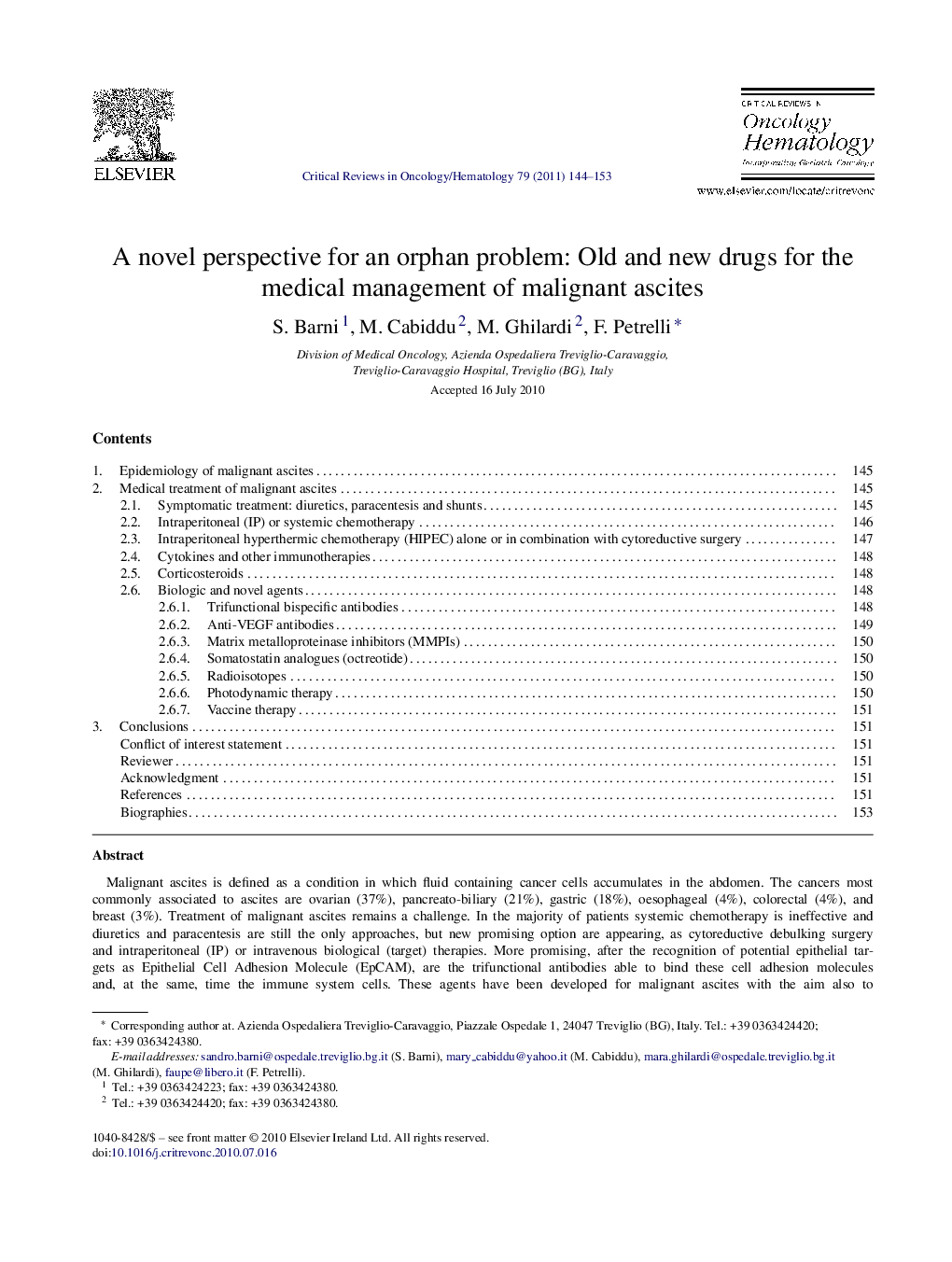| Article ID | Journal | Published Year | Pages | File Type |
|---|---|---|---|---|
| 3329326 | Critical Reviews in Oncology/Hematology | 2011 | 10 Pages |
Malignant ascites is defined as a condition in which fluid containing cancer cells accumulates in the abdomen. The cancers most commonly associated to ascites are ovarian (37%), pancreato-biliary (21%), gastric (18%), oesophageal (4%), colorectal (4%), and breast (3%). Treatment of malignant ascites remains a challenge. In the majority of patients systemic chemotherapy is ineffective and diuretics and paracentesis are still the only approaches, but new promising option are appearing, as cytoreductive debulking surgery and intraperitoneal (IP) or intravenous biological (target) therapies. More promising, after the recognition of potential epithelial targets as Epithelial Cell Adhesion Molecule (EpCAM), are the trifunctional antibodies able to bind these cell adhesion molecules and, at the same, time the immune system cells. These agents have been developed for malignant ascites with the aim also to prolong the need for subsequent paracentesis. So patients with malignant ascites may look at the future with hope and growing optimism.
